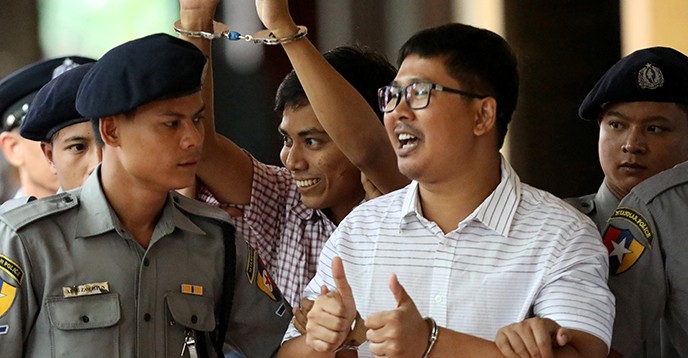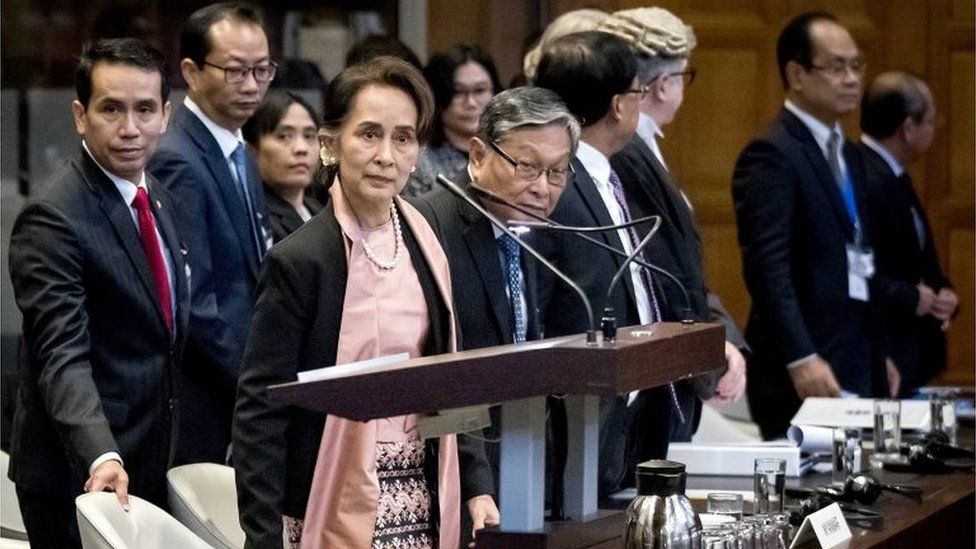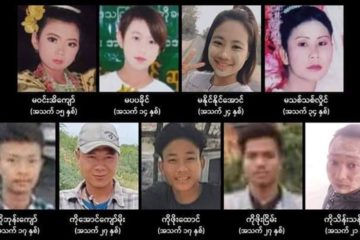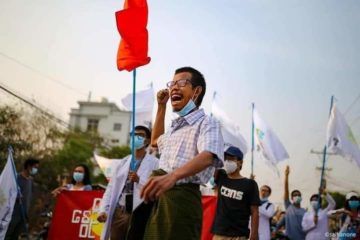
The National Unity Government (the parallel government that opposes the military regime), accepted the International Criminal Court’s (ICC) jurisdiction “with respect to the international crimes committed in Myanmar territory since 1 July 2002, which is the earliest date permitted by the Statute of the International Criminal Court (Rome Statute)”
The declaration was lodged in accordance with article 12(3) of the ICC, which enables a State not member of the Statute to accept the exercise of the jurisdiction.
According to Fortify Rights (Burmese version here), the other path NUG could take, is to ratify or access to the Rome Statute, which would entitle Myanmar to all the rights of a State party to the Statute and enable it to provide the ICC with jurisdiction over future atrocity crimes.
Only States party of the Rome Statute can veto the NUG’s acceptance of the ICC, meaning that The Tatmadaw, China and Russia are not legally entitled to oppose it.
What is the ICC?
It’s an international court located in Hague, Netherlands. By ratifying or acceding the Rome Statute or by lodging article 12(3) (as NUG did), States can delegate their jurisdiction the ICC to investigate and prosecute mass-atrocity crimes committed in their territory or by their nationals.
This usually happens when the State is unable or unwilling to address such crimes.
The Burmese military, also known as Tatmadaw, committed numerous atrocities. Since Burma reached independence, it has never stopped fighting wars against ethnic minorities, forcibly displacing millions of people. It killed thousands of civilians and committed systematic rapes and torture. Karen, Karenni, Kachin, Shan, Mon, Chin, Rakhine ethnics are among the victims. Since February 2021 the Burmese military killed over 1000 people, including ethnic Bamar.
in July 2019, the ICC proceeded with an investigation on the 2017 Rohingya genocide in Rakhine State.
After months of fighting, in August 2017 ARSA (Arakan Rohingya Salvation Army), a Rohingya insurgent group, launched an attack against the Tatmadaw, killing 12 security forces. The Tatmadaw used the attack as a pretext to launch its a counter-attack killing thousands of innocent Rohingya people, raping thousands of women and forcing over 700.000 people to flee the country. The Tatmadaw, as well as the NLD government, labeled it as a “clearance operation”, but the scale of the violence as well as the past history of marginalizing and abusing Rohingya people, leave little doubt that the Burmese military acted with genocidal intentions.
In December 2017 Reuters journalists Wa Lone and Kyaw Soe Oo were arrested because of their investigation of the Inn Dinn massacre in which 10 Rohingya people were killed by Burmese soldiers. Despite a police witness testified that the two reporters were framed, they were sentenced to 7 years in prison. They were released after nearly 2 years thanks to a general amnesty. The Burmese soldiers responsible for the massacre spent less than a year in prison.

Even though in 2019 Myanmar was not part of the Rome Statute, the ICC stated that it could exercise jurisdiction over crimes when part of the criminal conduct takes place on the territory of a State Party, in this case Bangladesh, where most of the 700.000 Rohingya refugees fled.
In December 2019 State leader Daw Aung San Suu Kyi traveled to the Hague to defend the Tatmadaw against accusations of genocide. The move was widely criticized abroad, but was incredibly popular in Myanmar, especially among Bamar people. Her trip to the Hague was seen as a brave defence of Myanmar against foreign interference and surely contributed to the NLD victory in the 2020 elections.

While she stated that eventual war crimes would be persecuted by the military justice system, none of the generals who planned the atrocities was brought in front of a court.
In September 2020 two Burmese soldiers have been taken to the Hague after confessing in a video to murdering Rohingya in 2017. The two were captured by the Arakan Army and then sent to Bangladesh.
Myo Win Tun, 33, said he was ordered to “shoot all that you see and hear,” adding that he committed rape during the operations.
Zaw Naing Tun, 30, said he stood guard while his senior officers raped Rohingya women. They gave the names and ranks of 17 other soldiers who they say committed atrocities, including six senior commanders who ordered them to “exterminate” all Rohingya. (Source: DW)
The NUG’s decision is important as it allows the ICC to have jurisdiction over all the crimes committed by the Tatmadaw in the past 20 years on Myanmar’s soil.
NUG’s commitment to end the Burmese military’s impunity is an important step to gain international legitimacy. While NUG’s official recognition is almost impossible at the moment, this is clearly an important step as it signals the NUG’s will to end the Tatmadaw’s impunity.
It’s worth to remember that the military regime is trying to replace the Myanmar’s representative to the United Nations Kyaw Moe Tun, who was nominated by the previous democratic government. The battle for the UN seat between pro-democracy forces and the regime is crucial.
The US authorities recently discovered a plan to assassinate Kyaw Moe Tun. Two Burmese citizens have been arrested in New York. According to confessions, the instigator is an arms dealer in Thailand, linked to the Burmese generals.



0 Comments